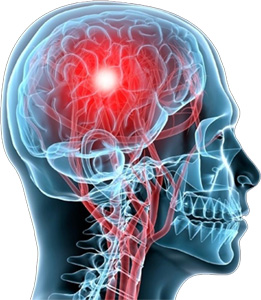Testing For Concussions

Sports-related concussion have received increasing attention as a cause of short and long-term neurologic symptoms among athletes. LOSM in conjunction with the
Concussion Management Alliance use a combination of the Automated Neuropsychological Assessment Metrics (ANAM) and The King-Devick to establish baseline testing for concussions.
Automated Neuropsychological Assessment Metrics (ANAM)
ANAM is a library of computer-based assessments of cognitive domains including attention, concentration, reaction time, memory, processing speed, and decision-making. ANAM has been administered nearly two million times in a variety of applications and settings. ANAM provides clinicians and researchers with tests to evaluate changes in an individual’s cognitive status over time.
The King-Devick Test For Concussion
The King-Devick test is an accurate and reliable method for identifying athletes with head trauma, and is a strong candidate rapid sideline screening test for concussion. The King-Devick (K-D) test is based on measurement of the speed of rapid number naming (reading aloud single-digit numbers from 3 test cards), and captures impairment of eye movements, attention, language, and other correlates of suboptimal brain function. We investigated the K-D test as a potential rapid sideline screening for concussion in a cohort of boxers and mixed martial arts fighters.
Eye Movements and Concussion Testing
Peer-reviewed research has shown that adding a vision-based performance measure to cognitive and balance testing enhances the detection capabilities of current sideline concussion assessment (Journal of Neuro-Ophthalmology, Adding Vision to Concussion Testing: A Prospective Study of Sideline Testing in Youth and Collegiate Athletes 2015).*




